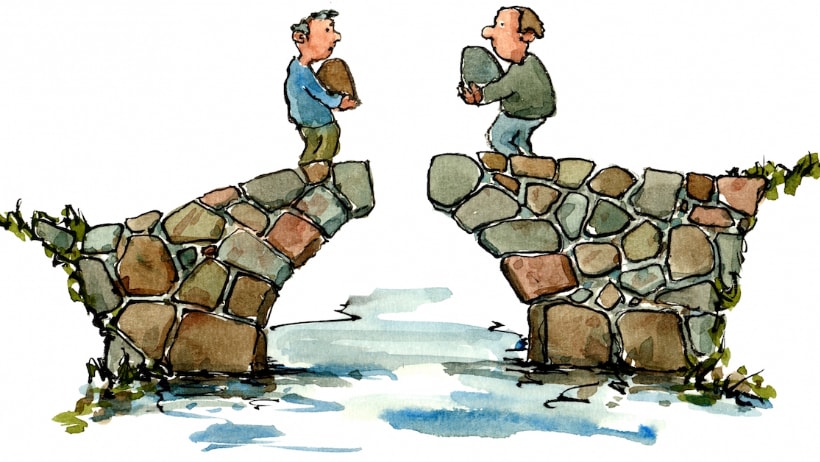Life is often about making compromises. Sometimes we compromise because it’s the easiest solution. I work on one side of town, you work on the other, and we pick a place in the middle for coffee. Other times compromise means one person bends a little bit further than the other to make the situation work. The key is for each party to know what they want and how far they’re willing to bend, as well as recognize that pleasing only yourself won’t lead to a workable solution.

This week we read parshat Beha’alotcha, a turning point in our narrative. This section of text begins with instruction for the purification of the Levites as they do their holy work in the Tabernacle. We read about the first Passover sacrifice in the wilderness and how to celebrate Passover if we miss it the first time around. Then the text turns to the Tabernacle, the Mishkan, and teaches us that God’s presence hovers over it in a cloud. Finally, Moshe’s family – his father-in-law, wife, and children – return to join him and the rest of the Israelite nation on their journey through the wilderness. It is in the return of his family to the camp that we learn about what unrealistic expectations have been levied against Moshe.
As God is conversing with the Moshe, God tries to understand both the mood of the people and the situation at hand. In chapter 11, verse 17 God says, “I will come down and speak with you there, and I will draw upon the spirit that is on you and put it upon them; they shall share the burden of the people with you, and you shall not bear it alone.” The people are angry about their food situation and generally about being in the desert, and they take it out on Moshe. God realizes that in these circumstances and with this state of mind, it is unrealistic to ask the people to elevate themselves. And so, God will “come down.”
Samson Raphael Hirsch, a 19th century German commentator on the Torah, reads this verse as God predicting that given the mood of the people, they shouldn’t be expected to rise toward God. Instead, God will come down to shorten the distance between them. In other words, well before we started talking about things like relational Judaism and the outreach potential of social media, God understood the need to address the people where they were and help elevate them by meeting them halfway.
Too often we demand compromise as if it’s one-sided. We expect others to “rise to the occasion.” But parshat Beha’alotcha reminds us that sometimes we have to meet in the middle in order to move forward together. This is the blessing this week, the blessing of walking with each other, of accepting each other where we are at in every circumstance and working to move forward together.
-Rabbi Eve Posen
[Watercolor by Frits Ahlefeldt]
Source: Meet Me Halfway – Parshat Beha’alotcha 5776 – Rabbi Eve Posen



